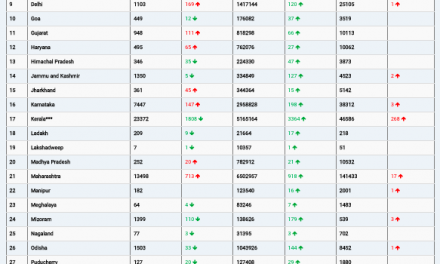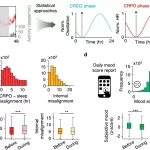In a groundbreaking study published in Nature, researchers have harnessed anonymized mobile phone data alongside genomic information to track the spread and evolution of pathogens, shedding new light on the dynamics of diseases like pneumonia and meningitis caused by Streptococcus pneumoniae, commonly known as pneumococcus.
Led by scientists from the Wellcome Sanger Institute, University of the Witwatersrand, National Institute for Communicable Diseases in South Africa, and the University of Cambridge, the study integrates genomic data from nearly 7,000 pneumococcus samples with detailed human mobility patterns. This innovative approach allowed researchers to map how these bacteria move between regions and evolve over time, a critical step in understanding their response to vaccines and antibiotics.
Pneumococcus, responsible for a significant burden of pneumonia-related deaths globally, exhibits a complex genetic landscape with over 900 known strains worldwide. The study reveals that despite initial successes of the 2009 pneumococcal vaccine in reducing targeted strains, non-targeted strains gained a striking 68% competitive advantage, often becoming resistant to antibiotics like penicillin. This finding underscores the rapid adaptability of pathogens in response to vaccination efforts.
Dr. Sophie Belman, lead author of the study, highlighted the significance of their findings: “Our research shows that while pneumococcus spreads relatively slowly, interventions such as vaccines can profoundly alter its dynamics. Understanding these dynamics is crucial for developing effective vaccination strategies and combating antibiotic resistance.”
The study’s computational models, developed using Meta’s anonymized mobility data, revealed that pneumococcal strains take approximately 50 years to fully disseminate across South Africa’s population, largely influenced by local human movement patterns. This timeframe underscores the challenges in controlling diverse pathogens like pneumococcus, which persist in multiple strains simultaneously.
Dr. Anne von Gottberg from the National Institute for Communicable Diseases emphasized the ongoing threat posed by pneumonia in South Africa, despite vaccination efforts: “Continuous genomic surveillance and adaptive vaccination strategies are essential to mitigate the burden of disease caused by these adaptable pathogens.”
Professor Stephen Bentley, senior author at the Wellcome Sanger Institute, highlighted the study’s breakthrough in understanding pathogen migration: “By combining bacterial genomics with real-world human travel data, we can now predict where high-risk strains might emerge next, potentially averting future outbreaks.”
This study marks a significant leap forward in infectious disease research, offering a blueprint for tracking and anticipating the spread of pathogens globally. As the world faces ongoing health challenges such as COVID-19, tuberculosis, and HIV, the integration of genomic and mobility data promises to revolutionize our approach to disease prevention and control.
For more information on the study and pneumococcal disease, visit Nature and CDC.











